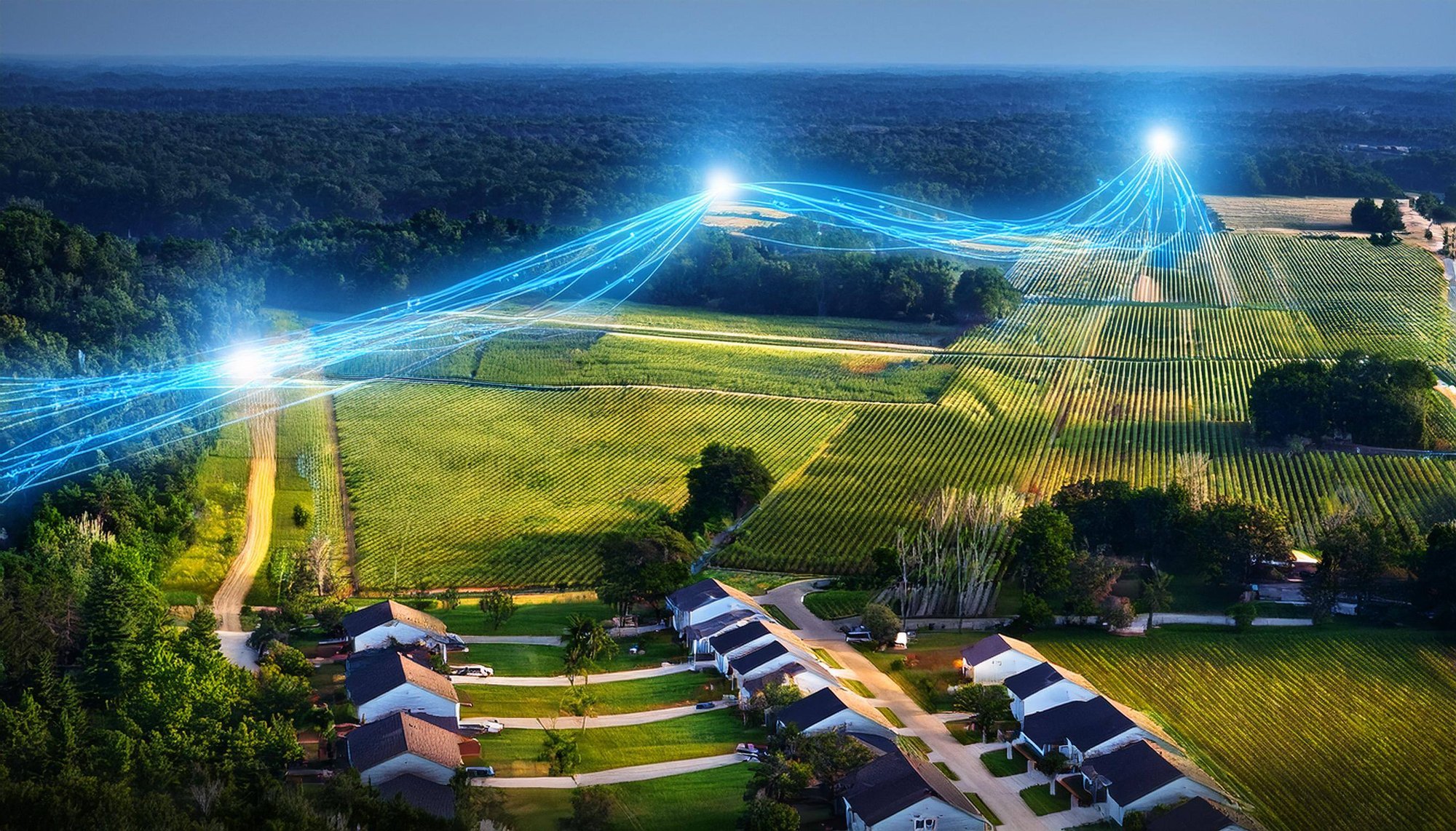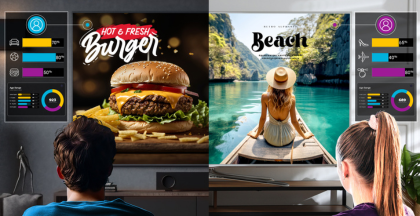One of Hong Kong’s premier telecommunications service providers recently streamed a live multi-camera experience to audiences, at scale.
During the finale of a popular reality TV series, the previously mentioned service provider used a cloud-based, end-to-end solution to stream multiple camera angles to viewers resulting in a more engaging live experience on every screen. The event also leveraged 5G networks to stream the live multiview, utilizing innovative technologies resulting in positive feedback from its viewers.
Launching a video streaming service is more accessible today thanks to the shift to software-based solutions. But why take this risk on new technologies?
The global streaming market is expected to reach $149.34 billion by 2026 putting more pressure on video providers to innovate and differentiate themselves from their competitors. Streaming an exceptionally personalized experience remains a key strategy. However, a strong focus for service providers remains: service providers need to focus on enhancing the video experience while minimizing video delivery costs.
This article explores how to bring new immersive viewing experiences to subscribers on every screen: multi-camera live streaming is one new way that is gaining momentum with service providers.
Read on to learn more about:
- The definition of multi-camera live streaming
- Use cases and user experience benefits of multi-camera streaming
- Multi-camera case study
- What technological considerations service providers should consider
What Is Multi-Camera Live Streaming?
Multi-camera live streaming uses live video and audio feeds taken from several cameras filming at different angles to provide distinct views of a single scene. Being able to show multiple streams of a scene from various angles creates more engaging on-screen experiences.
Multi-camera viewing provides more perspective to the viewer and creates a more immersive experience. While multi-camera viewing is not a novel concept, high-quality, end-to-end live streaming of multiple cameras now allows service providers to reach more people on more devices than ever.
How Does Multi-Camera Live Streaming Add Value?
The ability to leverage multiple cameras and deliver the video streams is becoming more accessible, and we will describe below how. As a result, more organizations are looking to benefit from multi-camera live streaming capabilities. Here are a few instances where the ability to live stream multi-camera angles can add value to the viewing experience:
- Sports events
- News
- Concerts and festivals
- Reality TV and game shows
- Religious or community events
Sporting events are a perfect use case for multi-camera live streaming as it’s ideal to get multiple angles for goals, penalties, and other significant events. Leveraging multi-camera streams creates the opportunity to live stream varied angles, which wouldn’t otherwise be possible.
Multi-Camera Case Study: French Tennis Open with France Télévisions
Pre-pandemic, Harmonic was in talks with France TV to create more immersive experiences for the upcoming French tennis tournament. As a result of the pandemic, no equipment would be installed in the France TV compound, leading to the quick implementation of a cloud-based implementation in under thirty days.
Along with other key France TV partners, we successfully deployed a multiview, multi-camera architecture, considering the following aspects:
- Overall architecture
- SRT transmission
- Content production workflow
- Mosaic content preparation
- Cloud-based Video delivery processing workflow
- Delay
- Player
- Experience
For a full breakdown of the technical aspects of multi-camera streaming, check out the post on France TV.
A Major Service Provider’s Approach for Streaming Live with Multiple Camera Angles
Another example of how multi-camera live streaming adds value for video streaming providers is for live TV shows. One major service provider in Hong Kong, leveraged multi-camera live streaming capabilities during the finale of a popular reality TV show hosted by ViuTV Hong Kong, centered around the search for the next generation of Hong Kong stars. It’s similar in concept to the American television series “The Voice.”
Providing viewers with multiple camera shots as their favorite candidates competing for their next big break is a far more engaging experience than watching a single camera angle. Viewers can opt to see the candidate on stage, the judge’s reactions, or see the candidate’s family and friends waiting in the wings. The multi-camera streaming experience brings real-time excitement to live events, making viewers feel like they’re actually there.
This major service provider trusted Harmonic’s cloud-based live streaming solution for the event. Harmonic provided world-class DevOps and an on-site support team to ensure service continuity.
During the event, they ran 13 live production cameras. The camera feeds were sent to the VOS®360 Media running on the public cloud. The subscribers were able to select and watch multiple camera views via a special streaming application on designated 5G-connected smartphones. It was all set up within days utilizing the power of Harmonic’s cloud-based solutions.
The VOS360 media supported the entire media processing workflow from ingest to distribution, simplifying the live streaming workflow for the service provider. Real-time scaling for traffic surges and CDN delivery helped optimize the user experience by ensuring low latency and high reliability for the large number of live viewers that watched the live event.
Must-Have Capabilities to Enable Multi-Camera Live Streaming
Your live streaming media should have a few essential capabilities to ensure the flawless experience that the Hong Kongese service provided for its live finale event.
- Cloud-based: Running your service with a cloud streaming solution will enable near real-time scaling and increased operational efficiency. Your video processing and delivery solution are always up to date with the latest features, formats, and capabilities.
- Geo-redundancy: 1+1 cloud-based geo-redundancy ensures that your live stream has zero downtime.
- Flexible delivery pricing: An elastic usage-based pricing model allows you to save on CAPEX.
- Fast launch: For a limited-time live event, it’s important to be able to spin your service up fast to ensure your subscribers don’t miss important moments of the live event. A cloud-based video streaming solution enables agility and flexibility to launch fast and stream at scale.
Multi-Camera Live Streaming Over 5G
As 5G networks are rolled out around the world, they will provide the bandwidth necessary to stream superior quality, interactive video experiences, including multi-camera views.
Harnessing 5G and the latest cloud-based streaming technologies, the service provider delivered a much more interactive and personalized user experience than what viewers are accustomed to. Based on the positive feedback from subscribers, the Hong Kongese service provider is working to produce more content with multiview features. Watching multiple camera angles on any device is just a taste of the innovation that’s on the horizon for streaming in the future, thanks to the collaborative efforts with Harmonic.
Overcoming Challenges for Multi-Camera Live Streaming
Streaming live multi-camera views requires a lot of bandwidth and computational power. Now that 5G networks are being deployed globally, multi-camera live streaming is positioned to become more mainstream.
To achieve the premium user experience that multi-camera live streaming can offer, there are some content delivery requirements to prepare for:
- Scaling: It’s impossible to predict how many viewers will be watching during a live event. If it’s a popular television series like “King Maker III,” you might be looking at hundreds of thousands of viewers. Having a cloud-based streaming platform that can scale in real-time will help you address spikes in viewership, without compromising the quality of the live multiview stream.
- Quality of Experience: Viewer expectations are higher than ever. Any reduction in the quality of experience could lead to viewer dissatisfaction. Efficient encoding, including the latest AI techniques, can help you guarantee a world-class quality of experience with reduced latency and less buffering.
- Streaming Costs: Traditionally, deploying a video infrastructure requires significant upfront investments. For single live events or occasional use cases, investing in an on-premises streaming solution doesn’t make financial sense. With a cloud-based solution, you can avoid high CAPEX and only pay for what you use. Also, with advanced AI-driven compression and content-aware encoding, you reduce bitrate to save on storage and delivery costs.
Get Started with Cloud-Based Multi-Camera Streaming
New enhancements to the video streaming experience are coming, and multi-camera streaming is one of them. However, as is often the case with emerging streaming technologies, ensuring the video delivery system is able to evolve to handle traffic/bandwidth demand efficiently is important, but even more so, ensuring the best end-user experience to as many viewers, as on as many devices, as possible.
Contact us about how you can start streaming live multi-camera angles. Reach out to Harmonic today.










